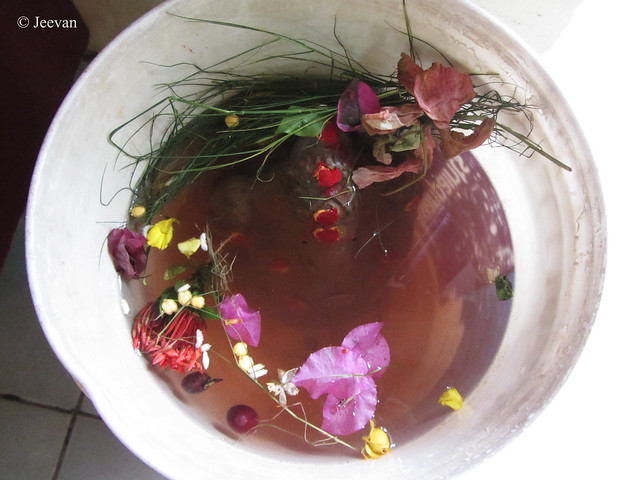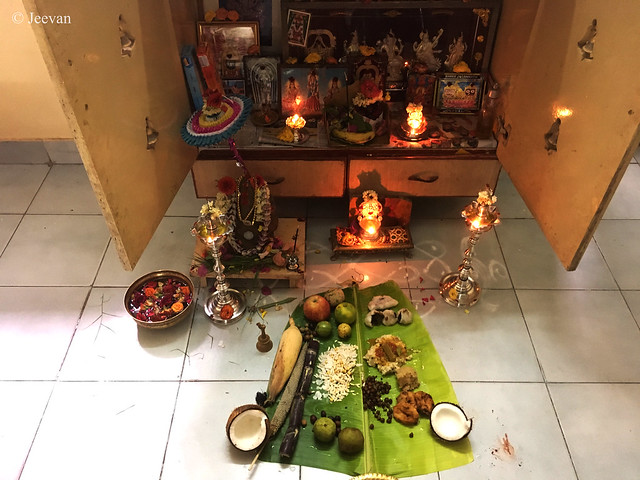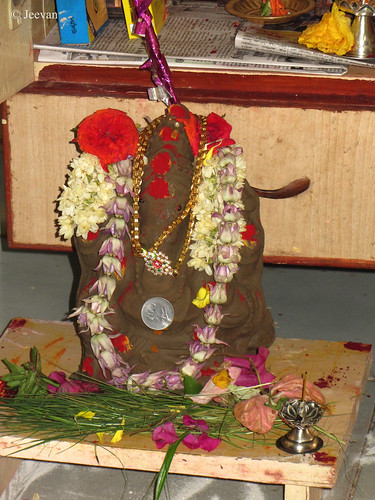Ganesh Chaturthi was celebrated at home on Friday and as usual parents bought clay idol
of Ganesh and after the worship the idol was immersed in a tub of water in the
evening. For last 10 years we have been immersing the idol in same way rather
dropping at sea or river (what many others do), and the muddy water is later
used for watering plants.
Actually the clay idols should be
immersed in rivers, where those days there used to be flood in rivers during
this time and the running water wash away the sands on river bed to let water
flow easily into the sea instead of slow and steady progress which rise up the groundwater
table. The dissolving clay idols control the flow of water by blocking and turning
it harder and the dry clay idols suck the water at the floor of river help increasing
the groundwater level.
 |
| The clay idol put into a bucket of water to dissolve |
Our ancestors
had a reason to celebrate Ganesh Chaturthi and the practice of dissolving clay
idols was beneficial then, but what we dissolve these days only pollute the water
bodies. The clay was transformed into various toxic substances to give colors
and different shapes to Ganesha. These days all rivers run into the state are dry
but the reasonable practice, which supposed to take a break turned into a ritual
where the choice of immerse becomes anything and most of the times it was sea or
lakes.
For those unaware:
Ganesh
Chaturthi is a grand festival in India, devoted to Ganesha – a prime deity
worshiped by Hindus. It is celebrated as ten-day festival in northern
states of India and is usually celebrated privately at home as well in public,
and is organised by local youth groups mostly where they collect money from
public to form pandals (temporary shelters) to install Ganesha idols.



Interesting! Thanks for the background on how these things developed.
ReplyDeleteHello Jeevan!:) This was a most interesting read about the practice of worshiping clay idols, which is a family ritual! Traditions and rituals die hard, even though the true purpose for the festival no longer exists, the 10 day Ganesh Chaturthi festival continues to be celebrated by the faithful, like so many other traditions, and religious festivals around the world. Thank you for your detailed explanation.:)
ReplyDeleteGrand setting. Hope you had a lot of kozhukkattai :)
ReplyDeleteHave a Happy Week, Jeevan!
Peace :)
This is a good eye opener to learn about how the idol statues are dissolved into the water. This sounds so practical yet unique to me. I like the way the Hindus place the altars in a cupboard-like shrine with doors covered. I could understand the theory behind the closed doors.
ReplyDeleteGanaparthi Bappa Morya.
ReplyDeleteInteresting sharing on your family ritual and worship. This is something new to me. Have a wonderful day!
ReplyDeleteThanks for sharing your wonderful tradition of Ganesh ~ an honor to share with you ~ ^_^
ReplyDelete(A SHUTTERBUG EXPLORES)
Hello, it is interesting learning and seeing your rituals. The festival sounds like a wonderful tradition and celebration. Happy Monday, enjoy your new week!
ReplyDeleteSuch pretty shots.
ReplyDeleteWe only buy Clay Pillayars that are not painted. This year we immersed it in the beach ourselves :)
ReplyDeleteDestination Infinity
Thanks for all the information about both the festival and the idols. I think your family is wise to immerse the idol in the bathtub and then use the water to water your plants. Great conservation of resources!
ReplyDeleteI remember this from last year. The flowers decorating the soaking idol makes a grand design.
ReplyDelete